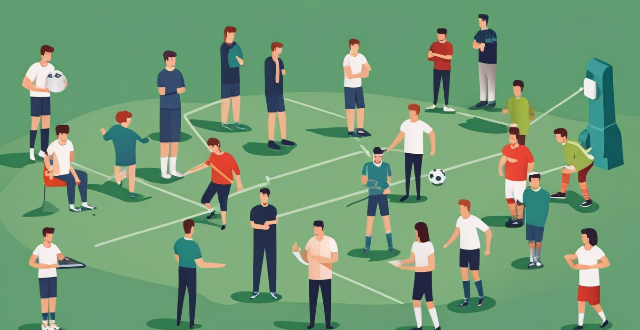Football managers play a crucial role in the success of a football team, with responsibilities including tactical planning, team management, training, transfer market activities, media interactions, team morale, and budget management. They are responsible for analyzing opponents, devising strategies, selecting players, making substitutions, overseeing training sessions, developing young talent, identifying potential signings, negotiating contracts, representing the team in press conferences, providing post-match analysis, motivating players, resolving conflicts, and managing finances. Their decisions and leadership style greatly influence the direction and success of a football club.

The Role of a Football Manager
A football manager, also known as a head coach or gaffer, plays a crucial role in the success of a football team. Their responsibilities go beyond just coaching players on the field during matches. Here's a detailed breakdown of their various roles and responsibilities:
Tactical Planning
- Match Preparation: The manager is responsible for preparing the team for each match by analyzing the opponent and devising strategies to counteract their strengths and exploit their weaknesses.
- Formation & Playstyle: They decide on the team's formation and overall playing style, which should maximize the players' abilities and suit the team's philosophy.
Team Management
- Player Selection: Managers choose which players to start in each game based on form, fitness, and tactical considerations.
- Substitutions: Making timely substitutions during a match can significantly impact its outcome. The manager must make strategic decisions regarding when and whom to substitute.
Training & Development
- Skill Development: Managers oversee the training sessions to improve players' skills and tactics.
- Youth System: Many managers are involved in the development of young talents, ensuring that the club has a pipeline of future stars.
Transfer Market Activities
- Scouting & Recruitment: Managers identify potential signings that would fit into the team's system and budget.
- Salary Negotiations: They often have a say in contract negotiations with players and agents.
Media Interactions
- Press Conferences: Managers represent the team in press conferences, handling media pressure and maintaining a positive public image.
- Post-Match Analysis: They provide insights into the team's performance after each match, both good and bad.
Team Morale & Leadership
- Motivational Speaker: Managers inspire and motivate their players to perform at their best.
- Conflict Resolution: They handle any conflicts within the team, ensuring harmony among players and staff.
Budget Management
- Financial Responsibilities: Depending on the club structure, managers may have input on financial decisions related to the squad.
In summary, a football manager wears many hats, from being a tactician and strategist to a leader, motivator, and sometimes even a diplomat. Their decisions and leadership style can greatly influence the direction and success of a football club.